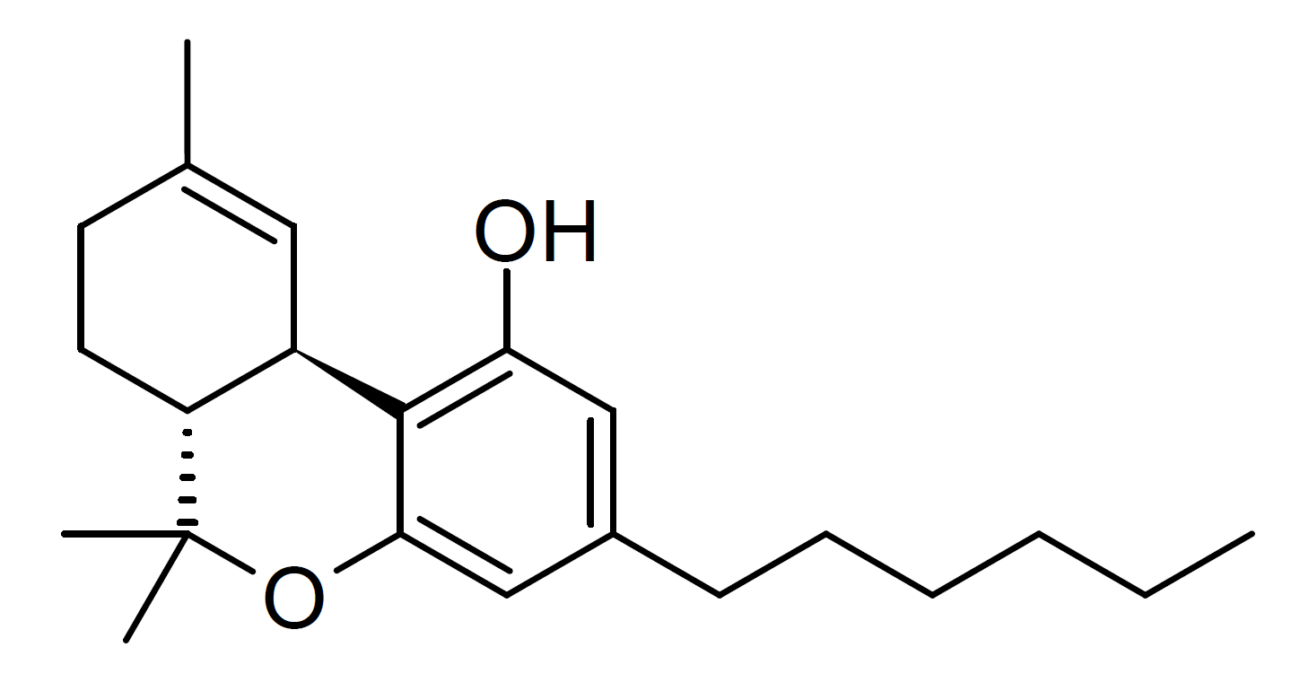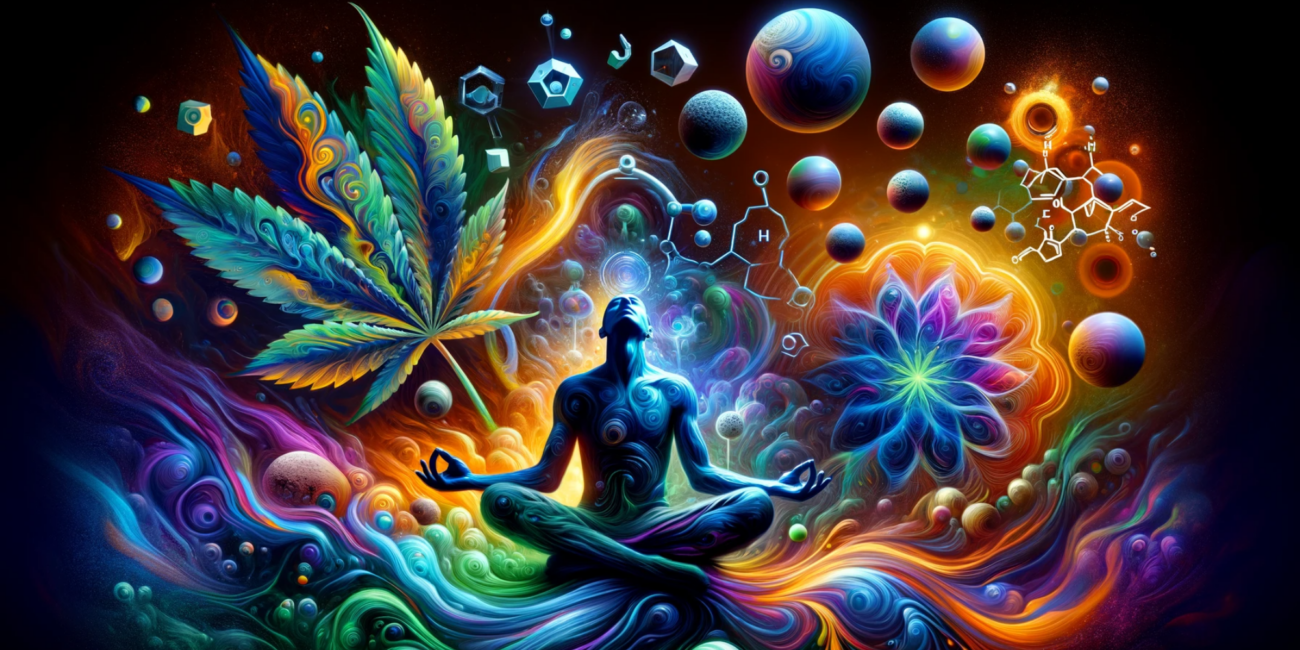News
THCH: the successor to HHC and THC?

Update 03/2024: THCH is illegal in France. It is an isomer of THC (tetrahydrocannabinol) and therefore automatically classified as a narcotic by French law.
In the ever-evolving world of cannabinoids, a new discovery is attracting interest: Tetrahydrocannabihexol (THCH). This compound, a distant cousin of the well-known THC, stands out for its unique molecular structure and potentially powerful effects. While science is still exploring the depths of cannabis, THCH presents itself as a fascinating subject for researchers and cannabinoid enthusiasts alike.
Since the ban, many legal cannabis consumers have been looking for a replacement... Certain cannabinoids such as H4CBD, the THCPHHCPO and THCV have claimed to be up to the job, but in reality, it's a different story. H4CBD and THCV are seen as alternatives to CBD with varying degrees of potency, while THCP and HHCPO, which could have been perfect, have turned out to be too different, with effects that are far too long-lasting. Some claim to feel a sensation of euphoria and heaviness for more than 24 hours, which can be disabling. Could THCH be the cannabinoid many consumers have been waiting for? We attempt to answer this question in this article, while also discussing its origin, molecular structure and legality (spoiler illegal).
What is THCH?
Tetrahydrocannabihexol is a recently identified and studied cannabinoid. It is chemically similar to THC (tetrahydrocannabinol), the best-known component of cannabis for its psychoactive effects. THCH's particularity lies in its unique molecular structure, characterized by an n-hexyl side chain made up of six carbon atoms. This structural difference could influence the way THCH interacts with cannabinoid receptors in the body, potentially leading to different or more intense effects than THC.
Preliminary research suggests that THCH may possess significantly greater psychoactive potency than THC Delta-9, the most abundant and active cannabinoid in cannabis. Studies indicate that THCH could be up to ten times stronger than THC Delta-9. This increased potency makes it one of the most psychoactive cannabinoids identified to date.

The origins of THCH
Tetrahydrocannabihexol (THCH) was discovered in 2020 by a team of Italian researchers, led by Dr. Cinzia Citti, as part of ongoing research into cannabis compounds. The discovery was published in the scientific journal Nature. Like many cannabinoids, THCH was identified using advanced analytical techniques such as gas chromatography and mass spectrometry, which enable the chemical composition of cannabis to be studied in detail. The discovery of THCH is just one in a series of new cannabinoid discoveries, underlining the complexity and richness of cannabis as a medicinal plant and subject of scientific research.
The availability of this cannabinoid is relatively rare, and it is found in much lower concentrations than better-known cannabinoids such as THC and CBD. The presence of THCH in cannabis depends on factors such as specific strains, growing conditions, and harvesting and curing processes.
What are the effects of THCH?
Good to know: Information on the effects and properties of tetrahydrocannabihexol (THCH) is still fairly limited, as it is a relatively new and little-studied cannabinoid. They should be taken on conditional grounds, and not as proven scientific assertions.
Tetrahydrocannabihexol stands out in the world of cannabinoids for its particularly intense effects and extended duration of action. This unique compound seems to offer a wide range of effects. These include pronounced euphoria, often sought for its recreational and relaxing properties. In addition, THCH appears to provide significant pain relief, an effect particularly relevant to people suffering from chronic or acute pain.
In addition to these effects, THCH contributes to deep mental and physical relaxation, a feature common to many cannabinoids but which, in the case of THCH, may be more pronounced due to its increased potency. This relaxation can be beneficial for people suffering from stress, anxiety or sleep-related disorders. In parallel, an increase in appetite is also observed, which may prove useful in the treatment of conditions such as anorexia or loss of appetite due to certain illnesses or medical treatments.
Another notable aspect of this cannabinoid is its ability to reduce inflammation. This property could have important implications in the treatment of various inflammatory conditions, such as arthritis or colitis.
What really sets this new molecule apart, however, is the prolonged duration of its effects. Its cerebral and physical effects are reported to last up to twice as long as those of traditional THC, making it a prime candidate for prolonged applications without the need for frequent dosing.
These characteristics position THCH as a potentially major player in the field of isolated and singular cannabinoids. It offers interesting prospects for both therapeutic and recreational applications, and underlines the importance of in-depth research to fully explore its potential and understand its long-term health implications.

THCH in comparison with CBD, THCP, THCV and HHC
Tetrahydrocannabihexol (THCH), like other cannabinoids such as tetrahydrocannabiphorol (THCP), cannabidiol (CBD), and tetrahydrocannabivarin (THCV), has its own unique characteristics. Here's a comparison of these different cannabinoids:
THCH vs THCP :
- THCH: As previously mentioned, it is known for its high potency and prolonged duration of action. It binds to cannabinoid receptors with high affinity, which may explain its increased potency compared with standard THC.
- THCP: This cannabinoid is even more potent than tetrahydrocannabihexol. It has a longer side chain than THC, enabling it to bind with greater affinity to CB1 and CB2 receptors. THCP can be up to 30 times more potent than conventional THC. Yet its long-lasting effect seems to be poorly tolerated by some consumers.
THCH vs CBD:
- THCH: Mainly known for its psychoactive effects, which are similar to but more intense than those of THC.
- CBD: Unlike THCH, CBD is not psychoactive. It is best known for its soothing, anti-inflammatory and analgesic effects. CBD is widely used to treat a variety of medical conditions, including epilepsy, anxiety, and certain sleep disorders.
THCH vs THCV:
- THCH: Has a prolonged action and high potency, making it potentially useful for lasting relief.
- THCV: Although chemically similar to THC, THCV has somewhat different effects. At low doses, it can attenuate some of the effects of THC, but at higher doses, it can produce similar psychoactive effects. THCV is also being studied for its potential effects on appetite regulation, weight loss and blood sugar control.
THCH vs HHC:
- THCH: As mentioned, THCH is known for its high potency and prolonged duration of action. It is a hexyl homologue of THC, with a slightly modified chemical structure that may increase its affinity for cannabinoid receptors, which explains its high potency.
- HHC: HHC is a hydrogenated form of THC. The main difference between THC and HHC lies in the saturation of HHC's molecular structure, making it more stable and potentially more resistant to oxidative degradation. HHC has similar psychoactive effects to THC, but is often described as slightly less potent. It shares many of the same effects as THC, such as euphoria, relaxation and analgesic effects.
How is THCH made?
The manufacture of tetrahydrocannabihexol (THCH) is not widely documented in the public scientific literature, partly because it is a relatively new and little-studied cannabinoid. However, potential manufacturing methods can be deduced from the way other cannabinoids are synthesized and extracted.
- Direct extraction: If THCH is naturally present in certain cannabis varieties in sufficient quantities, it could be extracted directly from the plant. This would probably involve methods similar to those used to extract THC, such as supercritical CO2 extraction, ethanol extraction or butane extraction. Unfortunately, the THCH content of hemp and cannabis rarely exceeds 1%. Natural extraction would therefore be financially impossible. Nobody could afford it. You'd need 90kg of flower with a THCH content of 1% to extract a 90% pure distillate.
- Chemical synthesis: THCH can also be synthesized in the laboratory by chemically modifying other cannabinoids. This method would involve manipulating the chemical structure of THC or other cannabinoids to create the specific alkyl chain that characterizes THCH. Currently, all THCH on the market is created in this way. That's why it's a semi-synthetic cannabinoid. The term semi-synthetic refers to a type of cannabinoid naturally present in hemp, but whose creation requires chemical synthesis.
- Genetic modification: Another potential approach could involve the use of biotechnology techniques to genetically modify cannabis plants to produce larger quantities of THCH. This method would be at the cutting edge of technology and is not yet used for cannabinoid production. Most producers with a knowledge of genetics are mainly trying to create the best possible CBD with a very low THC content, in order to be legal in France and the European Union.
It is important to note that the production of cannabinoids such as THCH can be complex, often requiring specialized equipment and chemical expertise. What's more, the legality of cannabinoid production and extraction can vary from jurisdiction to jurisdiction, and must be taken into account when manufacturing such compounds. This is why the price of new cannabinoids is often very high! Laboratories need to recoup their investment within a limited timeframe before they are banned.
Is THCH legal in France?
THCH is unfortunately illegal in France. That's why we've given up selling it! We invite you to fall back on other products such as our flowers and/or resins created from our two MCP formulas, designed to reproduce the effects of indica (MCP-I) and sativa (MCP-S) in an intense way.

